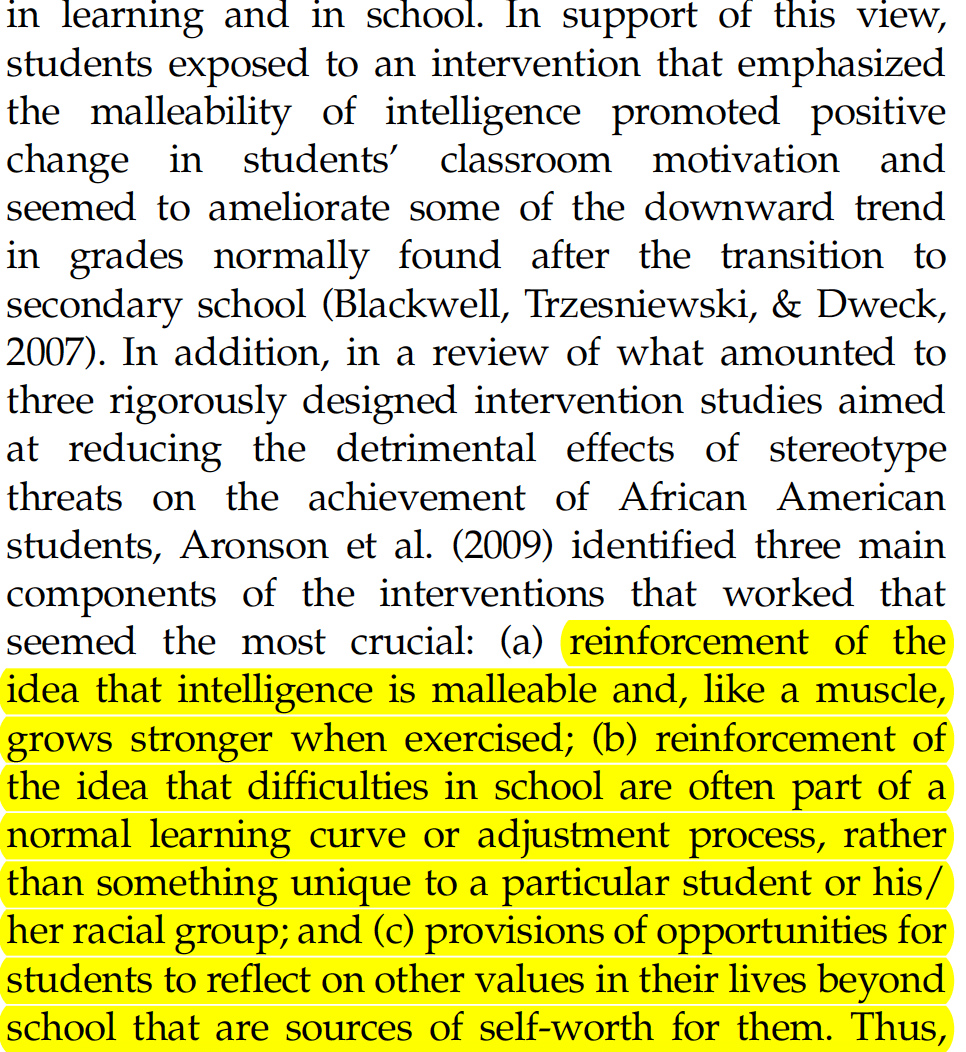
Academic achievement is one of the many worries for high school students. However, how we check for performance in the classroom is connected to the motivation and active engagement of the student. It’s essential to show students that learning takes time and effort and it doesn’t come right away. I think that’s why is important to demonstrate that intelligence is something that changes. It something that is malleable like a muscle and grows stronger the more we feed it with more learning opportunities (Eccles & Roeser, 2011). How can we promote that intelligence is malleable and can be controlled also by the students? What does that look like? I think one way is to promote autonomy in students’ learning to develop their metacognitive skills and check on their own academic progress. Project-based learning can also be used to encourage students to start something from scratch while teachers and peers can provide guidance and constructive feedback to demonstrate their progress.
I agree with you about emphasizing the usefulness of metacognition. Can something be malleable without the recognition of the plasticity? Can someone change and grow without acknowledging the possibility itself? So, my question is how not only do we cultivate metacognitive skills, but continue to support a desire to change and grow. Perhaps that is the basis of all teaching – creating a community of students that WANT to learn, to change and to grow?